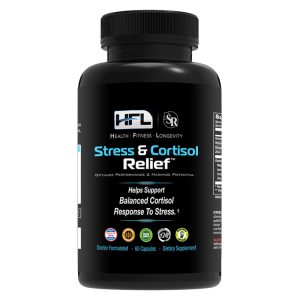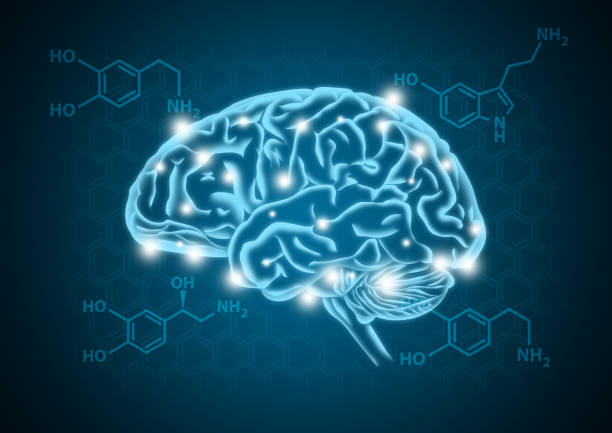Table of Contents
ToggleDefinition and Overview of Corticosteroids
Corticosteroids, or simply “steroids,” are a class of hormones produced naturally in the adrenal glands, located just above the kidneys. These powerful compounds play a vital role in regulating numerous bodily functions, including inflammation, metabolism, and immune response.
They can also be synthetically produced and prescribed as medications to treat various medical conditions. There are two main types of corticosteroids: glucocorticoids and mineralocorticoids.
Prednisone and other glucocorticoids exhibit robust anti-inflammatory characteristics, and doctors frequently prescribe them for treating conditions such as arthritis, allergies, asthma, autoimmune diseases, and specific forms of cancer. Mineralocorticoids primarily regulate water balance and electrolyte levels in the body.

Introduction to Prednisone and its Medical Uses
Prednisone is one of the most commonly prescribed corticosteroid medications available today. It belongs to the class of glucocorticoids mentioned earlier.
Prednisone works by mimicking cortisol—the body’s natural stress hormone—and helps suppress inflammation by reducing immune system activity. Medical professionals prescribe prednisone for a wide range of conditions like rheumatoid arthritis, inflammatory bowel disease (IBD), systemic lupus erythematosus (SLE), severe allergies, asthma exacerbations, organ transplantation rejection prevention, and certain skin disorders.
Understanding Brain Fog
The Mysterious Clouds in the Mind
Brain fog, my friend, is like a hazy veil that descends upon our cognitive realm, leaving us feeling lost in a dense fog of confusion. But fear not, for we shall unravel this enigma together!
Brain fog refers to a state of mental fogginess, where our thoughts become tangled like a ball of yarn and our ability to concentrate resembles that of a goldfish at times. It can manifest as forgetfulness, difficulty concentrating, mental fatigue, and a general sense of mental sluggishness.
The Many Culprits Behind the Fog
Now that we’ve grasped the concept of brain fog, let’s delve into its probable culprits. Various causes can contribute to this perplexing phenomenon.
One common trigger is lackluster sleep patterns – imagine your brain trying to function while being deprived of its much-needed beauty sleep! Another sneaky culprit could be stress, which has an uncanny talent for clouding our minds and turning them into an Olympic-sized maze.
Vitamins B12 and D impact cognition, with depleted levels akin to asking your brain to juggle with mittens. Hormonal imbalances contribute too, leaving the mind feeling dazed and confused as if hormones were cha-cha dancing out of sync.

The Connection between Prednisone and Brain Fog
How Prednisone affects the brain
When it comes to the relationship between prednisone and brain fog, it’s important to understand how this medication impacts the intricate workings of our minds. Prednisone, a potent corticosteroid, is commonly prescribed for its anti-inflammatory properties. However, what many people don’t realize is that this wonder drug can have unintended effects on cognitive function.
Prednisone has been shown to cross the blood-brain barrier and interact with various receptors in the brain. Once inside, it binds to glucocorticoid receptors, interfering with their normal functioning.
These receptors play a crucial role in regulating inflammation and stress response in the body. However, when prednisone disrupts their delicate balance, it can lead to an array of cognitive symptoms including memory problems, difficulty concentrating, and mental fatigue.
Mechanisms behind Prednisone-induced brain fog
Delving deeper into the perplexing phenomenon of prednisone-induced brain fog requires us to explore the underlying mechanisms at play. One proposed mechanism involves how prednisone affects neurotransmitters – those chemical messengers responsible for communication between neurons.
Prednisone has been found to alter levels of neurotransmitters such as serotonin, dopamine, and norepinephrine. These chemicals play vital roles in mood regulation, cognition, and attention span.
When their delicate balance is disrupted by prednisone’s interference with glucocorticoid receptors in the brain, it can lead to cognitive dysfunction characterized by brain fog.
Prednisone’s Impact on Neurotransmitters
Role of Neurotransmitters in Brain Function
Neurotransmitters, those magnificent messengers, play a pivotal role in our brain’s intricate web of signaling. These chemical substances are responsible for transmitting information between nerve cells, allowing us to experience emotions, generate thoughts, and perform countless physiological functions.
They are the conductors of our cognitive symphony. The delicate balance of neurotransmitters is crucial for maintaining optimal brain function.
Prednisone use can disrupt this equilibrium, potentially leading to a range of cognitive effects, including the puzzling phenomenon referred to as brain fog.
Specific Neurotransmitters Affected by Prednisone
Prednisone has been found to exert its influence on several key neurotransmitter systems within the brain. One such neurotransmitter affected by prednisone is dopamine – often hailed as the “feel-good” chemical due to its association with pleasure and reward pathways.
In addition to dopamine alterations, prednisone has also been shown to affect other important neurotransmitters such as serotonin and acetylcholine.
Serotonin gains renown for regulating mood and sleep patterns, while acetylcholine crucially aids in attention span and memory formation. When the use of prednisone disrupts these delicate mechanisms, it can contribute to cognitive difficulties that people commonly experience as brain fog.
The exact interplay between prednisone and neurotransmitters is still being unraveled, but this emerging understanding provides crucial insights into the mechanisms behind the corticosteroid daze.

Cortisol vs Corticosteroids: The Battle for Cognitive Clarity
Relationship between cortisol and corticosteroids
When it comes to cognitive function, the delicate balance between cortisol and corticosteroids can play a significant role.
Cortisol, often referred to as the “stress hormone,” is naturally produced by our adrenal glands in response to stress. It helps regulate various bodily functions, including metabolism and immune response.
Corticosteroids are synthetic versions of cortisol that are often prescribed to reduce inflammation in conditions like asthma, arthritis, or autoimmune disorders.
While they can be highly effective in managing these conditions, they can also lead to undesired side effects such as brain fog. This is because both cortisol and corticosteroids have similar mechanisms of action in the brain.
They bind to specific receptors known as glucocorticoid receptors (GR) in various regions of the brain associated with cognition and memory. Therefore, an imbalance between cortisol and corticosteroids caused by prolonged use of these medications can interfere with cognitive function.
How cortisol levels impact cognitive function
High levels of cortisol have been associated with impairments in memory consolidation, attention span, and executive functions. These effects are particularly pronounced when there is a disruption in the normal diurnal pattern of cortisol secretion.
Research suggests that prolonged high cortisol levels can affect the hippocampus, a vital area for memory formation. This could contribute to memory issues observed during long-term corticosteroid use.
It is important to note that while corticosteroids like prednisone can cause temporary cognitive impairments, these effects typically subside once the medication is tapered off or discontinued.
Factors Influencing Prednisone-Associated Brain Fog
Dosage and duration of prednisone treatment
Ah, the eternal conundrum: how much is too much? When it comes to prednisone and its brain-fog-inducing powers, the dosage and duration of treatment play significant roles.
You see, the higher the dosage and the longer you’re on this corticosteroid roller coaster, the higher your chances of experiencing a mind-muddling fog.
Prednisone is like a double-edged sword. On one hand, it can be a life-saving drug for treating various inflammatory conditions. But on the other hand, it may wreak havoc on your cognition.
Studies suggest that high doses or prolonged exposure to prednisone can increase your likelihood of experiencing brain fog. So if you find yourself in this unfortunate situation, don’t despair; it’s not just in your head – well, actually, it kind of is.
Predisposing factors such as age, pre-existing conditions, or concurrent medications
Age is just a number they say, but when it comes to prednisone-associated brain fog, it may play a role. Older folks tend to be more susceptible to cognitive side effects than their sprightly younger counterparts.
If you already have underlying neurological issues or mental health disorders like anxiety or depression before starting prednisone therapy, brace yourself for the possibility of exacerbated brain fog symptoms. It’s like adding fuel to an already smoky fire.
Concurrent medications can also join forces with prednisone to cloud our mental clarity further.
Certain drugs, such as benzodiazepines or anticholinergic medications, may increase the risk of prednisone-associated brain fog.
It’s like a precarious balancing act between multiple pharmaceuticals, and sometimes our brains end up paying the price.
Tips to Manage Prednisone-Associated Brain Fog
Lifestyle changes to support cognitive function
First and foremost, prioritize a healthy diet rich in brain-boosting nutrients. Load up on foods like fatty fish (hello, omega-3 fatty acids!), leafy greens, berries bursting with antioxidants, and nuts packed with vitamin E.
These nutritional powerhouses might just give your brain the nourishment it needs to combat that pesky fog.
Pro Tip: Establishing good sleep hygiene is crucial. Aim for 7-9 hours of quality shut-eye each night.
Sleep is when your brain recharges and consolidates memories, so don’t skimp on this vital activity. Create a bedtime routine that promotes relaxation and stick to it as best you can.
Avoid stimulating activities before bed (sorry Netflix binge-watchers) and instead opt for calming rituals like reading a book or taking a warm bath. Your brain will thank you for it in the morning when you wake up feeling more refreshed and mentally sharp.

Cognitive exercises and strategies to combat brain fog
- Mental stimulation: Engage in activities that challenge your mind such as puzzles, crosswords, or sudoku. These tasks activate different areas of the brain and may help improve cognitive function over time.
- Mindfulness meditation: This practice involves focusing your attention on the present moment without judgment. Research suggests that regular mindfulness meditation can improve attention and concentration, reducing the impact of brain fog.
- Organization and planning: Use calendars, to-do lists, and reminders to help you stay organized. Breaking down tasks into smaller, manageable steps can make them feel less overwhelming and improve your productivity.
- Nootropics and supplements: While more research is needed, some individuals report improved cognitive function with the use of certain nootropics or natural supplements like ginkgo biloba or bacopa monnieri.

What works for one person may not work for another, so don’t get discouraged if you don’t see immediate results. Stay positive, keep trying different strategies, and most importantly, be kind to yourself as you navigate through the foggy realms of prednisone-induced cognitive haze.
Alternative Treatment Options for Inflammation without Brain Fog
Exploring non-corticosteroid anti-inflammatory drugs (NSAIDs)
When it comes to managing inflammation without the dreaded brain fog, non-corticosteroid anti-inflammatory drugs (NSAIDs) can be a game-changer. These medications do a remarkable job of taming inflammation while minimizing cognitive side effects. NSAIDs, such as ibuprofen or naproxen, work by inhibiting enzymes called cyclooxygenases (COX), which are responsible for producing inflammatory molecules known as prostaglandins.
It’s important to note that while NSAIDs can be effective in combating inflammation, they are not without their own set of potential side effects. Long-term use of high-dose NSAIDs can lead to gastrointestinal problems like ulcers or bleeding.
It’s crucial to consult with your healthcare provider before embarking on an NSAID regimen and ensure you are taking the appropriate dose for your specific condition. When used responsibly and under medical guidance, these non-corticosteroid alternatives stand as formidable options for managing inflammation while preserving mental clarity.
Natural remedies that may alleviate inflammation.
One such remedy is curcumin, the active compound found in turmeric spice. Renowned for its potent anti-inflammatory properties, curcumin has been extensively studied for its ability to combat various inflammatory conditions without negatively affecting cognition.
Another powerful natural ally against inflammation is omega-3 fatty acids—those miraculous healthy fats abundant in fatty fish like salmon and sardines or available as supplements.

Conclusion
Understanding why some individuals are more susceptible to developing severe brain fog while taking prednisone will require extensive studies assessing genetic factors, pre-existing conditions, and individual variability in response to treatment.
In the meantime, staying informed about lifestyle changes that support cognitive function and implementing cognitive exercises can aid individuals in coping with this temporary mental haze. Remember that it’s just a cloudy chapter within a larger narrative of healing and that brighter days await beyond the fog.










